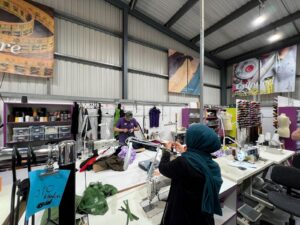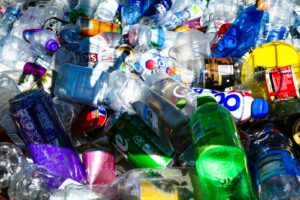New process creates fresh plastic from waste
Researchers have developed an efficient process for recycling plastic by turning it into a gas that can then be recycled at a molecular level to become new plastic materials.
The fact that plastic does not break down and therefore accumulates in our ecosystems is one of the major environmental problems that we are currently facing.
However, researchers at the Chalmers University of Technology, Sweden argue that the resilience of plastic is a good thing because the fact that it does not degrade makes it possible for circular usage.
The circular use of materials means that we keep resources in use for as long as possible by extracting the maximum value from them whilst in use and then recovering and regenerating products and materials when they are at the end of their service life.
The researchers note that the current model for recycling plastics follows a ‘waste hierarchy,’ meaning that plastic is repeatedly degraded to a lower and lower quality before finally being burned for energy recovery.
According to the study, in 2015, around 350 million tonnes of plastic waste was generated worldwide.
In total, 14% of this was collected for recycling, 8% was recycled into the plastic of lower quality and 4% was lost in the process. The rest went to landfill.
Henrik Thunman, Professor of Energy Technology said: ‘We should not forget that plastic is a fantastic material.’
‘The problem is that it is manufactured at such a low cost, it has been cheaper to produce new plastics from oil and gas rather than reusing plastic waste.’
‘Through finding the right temperature, and the right heating rate, we have been able to demonstrate the proposed method at a scale where we turn 200kg of plastic waste an hour into a useful gas mixture, which can then be recycled at the molecular level to become new plastic materials.’
The researchers see this as an opportunity to create a circular use of plastic in society, as well as an opportunity to free us from the need for oil and gas to produce various high-quality plastics.
According to Prof Thunman: ‘Circular use would help give used plastics a true value, and thus an economic impetus for collecting it anywhere on earth. This would help minimize plastics in nature and create a market for the collection of plastic that has already polluted the natural environment.’
Photo Credit – Pixabay















